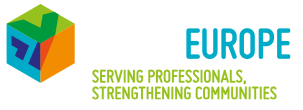By David Levin-Kruss, Yesod Europe Jewish Learning Director
 Have you ever filled out a grant application form? Almost always there is a question about what is new, different, or innovative about the program you want money for. But what is innovation? Why is it seen as so important? And is it as crucial as it is made out to be?
Have you ever filled out a grant application form? Almost always there is a question about what is new, different, or innovative about the program you want money for. But what is innovation? Why is it seen as so important? And is it as crucial as it is made out to be?
Many of us know the Hebrew word “chadash” which means new. But there’s a related Hebrew word “chidush” which means innovation, novelty, discovery, or new idea. In Chagiga 3a in the Babylonian Talmud it tells us that it is impossible for there to be a house of study without something new coming out of the learning. So chidush is an essential part of Jewish life.
We need chidush because as life changes, we need new ways of looking at the world. What worked once may not work anymore. If everything is the same, it gets boring. Part of being alive is discovering the new. But how does one do this?
Andres Spokoiny in his article “The Next Big Thing, or the Next Near Thing?” writes, “We invent based on what we have. Innovation happens mainly through a slow process of combining and recombining previously existing ideas.” In other words, there are few genuinely innovative ideas or programs. What one does is combine what one already has.
For example, I recently read about a nursery school situated in an old-age home. The seniors like seeing young kids around and the children have a band of doting adults to interact with. And it saves on rent. Brilliant new idea! But nursery schools always existed. Homes for the elderly always existed. Public buildings have always been needed. What happened was that somebody combined existing structures in a new way.
Perhaps this can explain a verse in Kohelet (Ecclesiastes) that has always puzzled me. Kohelet (1:9) writes, “There is nothing new under the sun.” How can this be? Every day we go online and see the amazing number of new ideas, inventions, events. Is there really nothing new? What Kohelet is saying is that all the “building materials” have always been there. But people can use these building materials to make new things.
There is nothing new under the sun, in the world of what exists. But in the world above the sun – the world beyond the physical, the world of ideas and creativity – new possibilities are endless.
This is reflected in the words the Hebrew language uses to describe people and G-d doing things. The word בורא – “boreh” – which means “creating something from nothing” refers to G-d. יוצר – “yotzer” which means “to form” is often applied to people. A yotzer is one who takes two or more elements and puts them together in an interesting way.
The same can apply to our jobs or careers. Often, we want something completely new and exciting to invigorate what we do. There is nothing wrong with this, and sometimes we even get it. But, when we don’t, we can look at what we already do. We can find connections between different aspects of our jobs or the organisations we work in that may seem separate, but that can be mutually enhancing and will create great synergy. That may turn out to be our next big thing that makes coming to work exhilarating.
